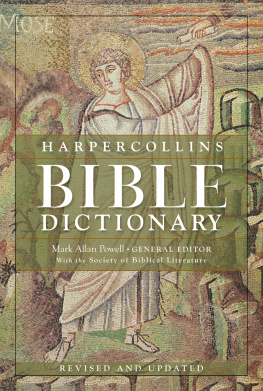Kiple Cindy - Knowing Scripture
Here you can read online Kiple Cindy - Knowing Scripture full text of the book (entire story) in english for free. Download pdf and epub, get meaning, cover and reviews about this ebook. City: Downers Grove;Illinois, year: 2009, publisher: InterVarsity Press, genre: Religion. Description of the work, (preface) as well as reviews are available. Best literature library LitArk.com created for fans of good reading and offers a wide selection of genres:
Romance novel
Science fiction
Adventure
Detective
Science
History
Home and family
Prose
Art
Politics
Computer
Non-fiction
Religion
Business
Children
Humor
Choose a favorite category and find really read worthwhile books. Enjoy immersion in the world of imagination, feel the emotions of the characters or learn something new for yourself, make an fascinating discovery.

- Book:Knowing Scripture
- Author:
- Publisher:InterVarsity Press
- Genre:
- Year:2009
- City:Downers Grove;Illinois
- Rating:5 / 5
- Favourites:Add to favourites
- Your mark:
- 100
- 1
- 2
- 3
- 4
- 5
Knowing Scripture: summary, description and annotation
We offer to read an annotation, description, summary or preface (depends on what the author of the book "Knowing Scripture" wrote himself). If you haven't found the necessary information about the book — write in the comments, we will try to find it.
Knowing Scripture — read online for free the complete book (whole text) full work
Below is the text of the book, divided by pages. System saving the place of the last page read, allows you to conveniently read the book "Knowing Scripture" online for free, without having to search again every time where you left off. Put a bookmark, and you can go to the page where you finished reading at any time.
Font size:
Interval:
Bookmark:
I f I were the devil (please, no comment), one of my first aims would be to stop folk from digging into the Bible. Knowing that it is the Word of God, teaching people to know and love and serve the God of the Word, I should do all I could to surround it with the spiritual equivalent of pits, thorn hedges and traps, to frighten people off. With smug conceit, no doubt, as if receiving a compliment, I should acknowledge that wise old Jonathan Edwards (1703-1758) had me absolutely pegged when he wrote:
The devil never would attempt to beget in persons a regard to that divine word which God has given to be the great and standing rule.... Would the spirit of error, in order to deceive men, beget in them a high opinion of the infallible rule, and incline them to think much of it, and be very conversant with it?... The devil has ever shown a mortal spite and hatred towards that holy book the Bible: he has done all in his power to extinguish that light.... He is engaged against the Bible, and hates every word in it.
I should labor every day to prove Edwardss words true.
How? Well, I should try to distract all clergy from preaching and teaching the Bible, and spread the feeling that to study this ancient book directly is a burdensome extra that modern Christians can forgo without loss. I should broadcast doubts about the truth and relevance and good sense and straightforwardness of the Bible, and if any still insisted on reading it I should lure them into assuming that the benefit of the practice lies in the noble and tranquil feelings evoked by it rather than in noting what Scripture actually says. At all costs I should want to keep them from using their minds in a disciplined way to get the measure of its message.
Were I the devil, taking stock today, I think I might be pleased at the progress I had made. But I should be very far from pleased to see this book by my friendsorry, J. I. Packers friendR. C.
For more than a century, Protestant theology has been in conflict about the Bible. The first storm center was inspiration and its corollary, inerrancy. Eighty years ago, the debate shifted to revelation, the method and content of Gods communication through allegedly fallible Scriptures. Interpretation is now the central interest, and the subjectivism which yesterday concluded that the Bible is neither true nor trustworthy today interprets it on the basis that its message to us is neither consistent nor clear. The results of so doing are often muddled and messy. Against this background, Dr. Sprouls vigorous laymans introduction to the interpretive task is more than welcome.
What are its special qualities? Clarity, common sense, mastery of material and a bubbling enthusiasm which turns the author from a good communicator into a superb one. The Bible excites him and his excitement is infectious. O taste and see! Sproul on Bible study will make you want to study the Bible, as well as equipping you to do so: and what greater virtue could such a book have than that? There are technical problems in hermeneutics that lie beyond its scope, but the basics are here, with a most salutary stress on the objectivity (the there-ness) of Gods instruction in the Scriptures and on the rationality of the method of deciphering and applying it. It is a pleasure and a privilege to commend to the Christian public a book calculated to do so much good.
J. I. Packer
apocalyptic. A literary genre that unveils the heavenly world and is characterized by a high degree of symbolic imagery. The most prominent apocalyptic books in the Bible are Daniel, Ezekiel and Revelation.
canon. Literally a measuring rod or standard. The term has come to mean the authoritative status of the final formation and collection of the biblical books.*
didactic. Literature that teaches or explains.
eisegesis. Reading meaning into a text.
exegesis. Literally, to guide out of. Getting meaning out of the words of a text.
genre. A term that refers to literary species or forms (from the French for style). Gospel, letter and apocalypse, among others, are genres of the New Testament.*
grammatical-historical method. A method of interpretation that focuses not only on literary forms but on grammatical constructions and historical contexts out of which a text (e.g., Scripture) was written.
hapax legomena. The appearance of words in a particular book that are found nowhere else in the authors writings.
hermeneutics. The science of biblical interpretation.
higher criticism. The critical study of biblical texts, especially the evaluation of questions such as authorship, date, sources and composition.*
hyperbole. The use of exaggeration for effect.
illumination. The Spirits work in assisting the reader to achieve clarity in understanding the content of the Word. (From Scripture Alone by R. C. Sproul.)
inerrant. The quality of being free from all falsehood or mistake, which safeguard the truth that Holy Scripture is entirely true and trustworthy in all its assertions. (From the exposition of the Chicago Statement on Biblical Inerrancy.)
lexicography. The craft of making a dictionary.
lexicon. In biblical studies, the common designation for a dictionary of Hebrew, Greek or Latin words.
metaphor. A figure of speech in which a word or a phrase literally denoting one kind of object or idea is used in place of another to suggest a likeness or analogy between them.
personification. A poetic device by which inanimate objects or animals are given human characteristics.
perspicuity. A technical term meaning the clarity of Scripture.
Poor Richards Almanack . A yearly almanac published by Benjamin Franklin. The almanac featured seasonal weather forecasts, practical household hints, poems, aphorisms, proverbs, puzzles and other amusements.
pragmatism. The approach to reality that defines truth as that which works.
quadriga. The method of interpretation in which each text has four meanings: literal, moral, allegorical and anagogical.
Shammai and Hillel. Two eminent first-century rabbis who held opposing views on many matters of ritual practice. Shammai was a conservative; Hillel a liberal.
source criticism. An approach to texts that seeks to discover the literary sources of a document. *
sub species aeternitatis . Literally, under the form of eternity, or from the perspective of eternity.
tabula rasa . Literally, a blank slate. It typically means to approach something without preconceived ideas or judgments.
* The definition was adapted from Arthur G. Patzia and Anthony J. Petrotta, Pocket Dictionary of Biblical Studies (Downers Grove, Ill.: InterVarsity Press, 2002).
For a list of IVP email newsletters, including information about our latest ebook releases please visit www.ivpress.com/ eu1.
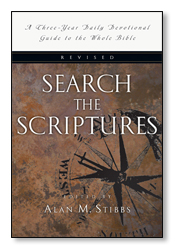
978-0-8308-9646-2
Page numbers refer to the print edition 978-0-8308-3723-6.
p. 16 a person is not dependent for understanding of Scripture: Chicago Statement on Biblical Hermeneutics, article 24, www.origins.org/ articles/ 00site_chicago.html.
p. 29 The modern world breeds pragmatists: John Stott, Your Mind Matters, IVP Classics (Downers Grove, Ill.: IVP Books, 2006), p. 14.
p. 36 Statistics on Bible: Daniel Radosh, A Publishing Miracle, The Week, April 11, 2008, p. 44; and Brittani Hamm, Poll: Bible Is Americas Favorite Book, USA Today, April 22, 2008 www.usatoday.com/ news/ religion/ 2008-04-22-bible-favorite-book_N.htm.
Font size:
Interval:
Bookmark:
Similar books «Knowing Scripture»
Look at similar books to Knowing Scripture. We have selected literature similar in name and meaning in the hope of providing readers with more options to find new, interesting, not yet read works.
Discussion, reviews of the book Knowing Scripture and just readers' own opinions. Leave your comments, write what you think about the work, its meaning or the main characters. Specify what exactly you liked and what you didn't like, and why you think so.

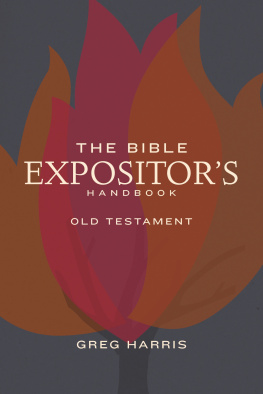
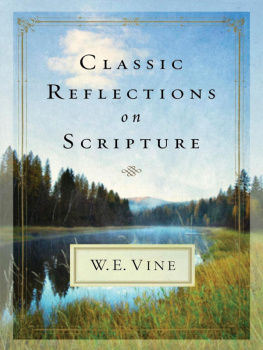
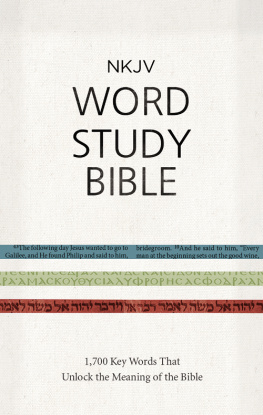
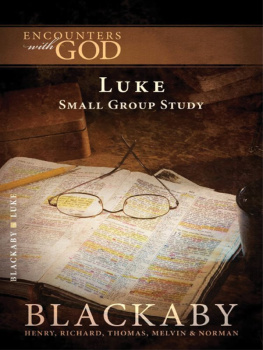
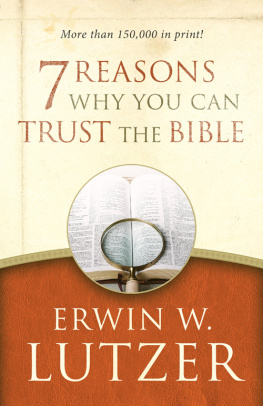
![Scott Hahn [Inconnu(e)] - Scripture Matters: Essays on Reading the Bible From the Heart of the Church](/uploads/posts/book/134760/thumbs/scott-hahn-inconnu-e-scripture-matters-essays.jpg)
